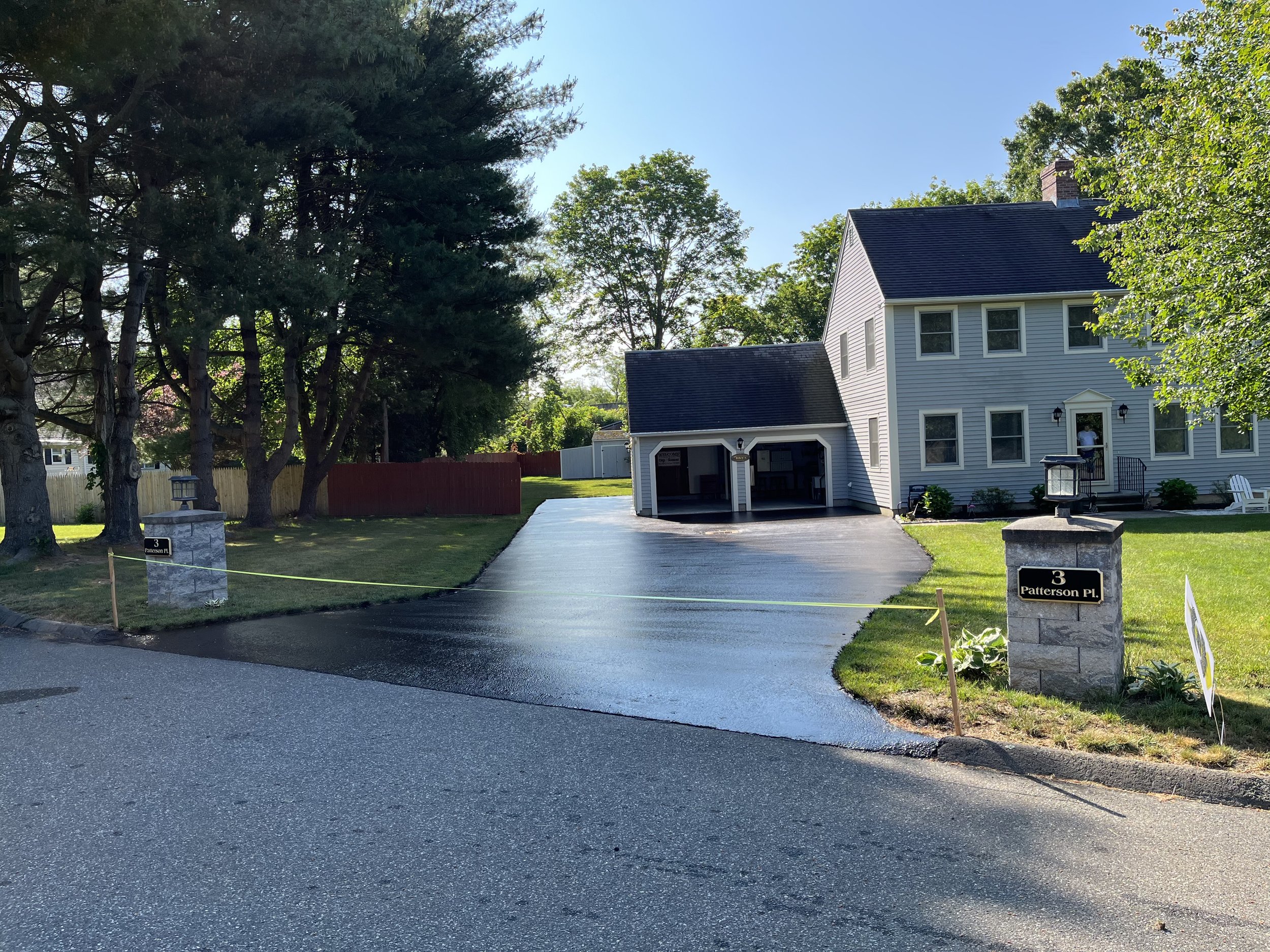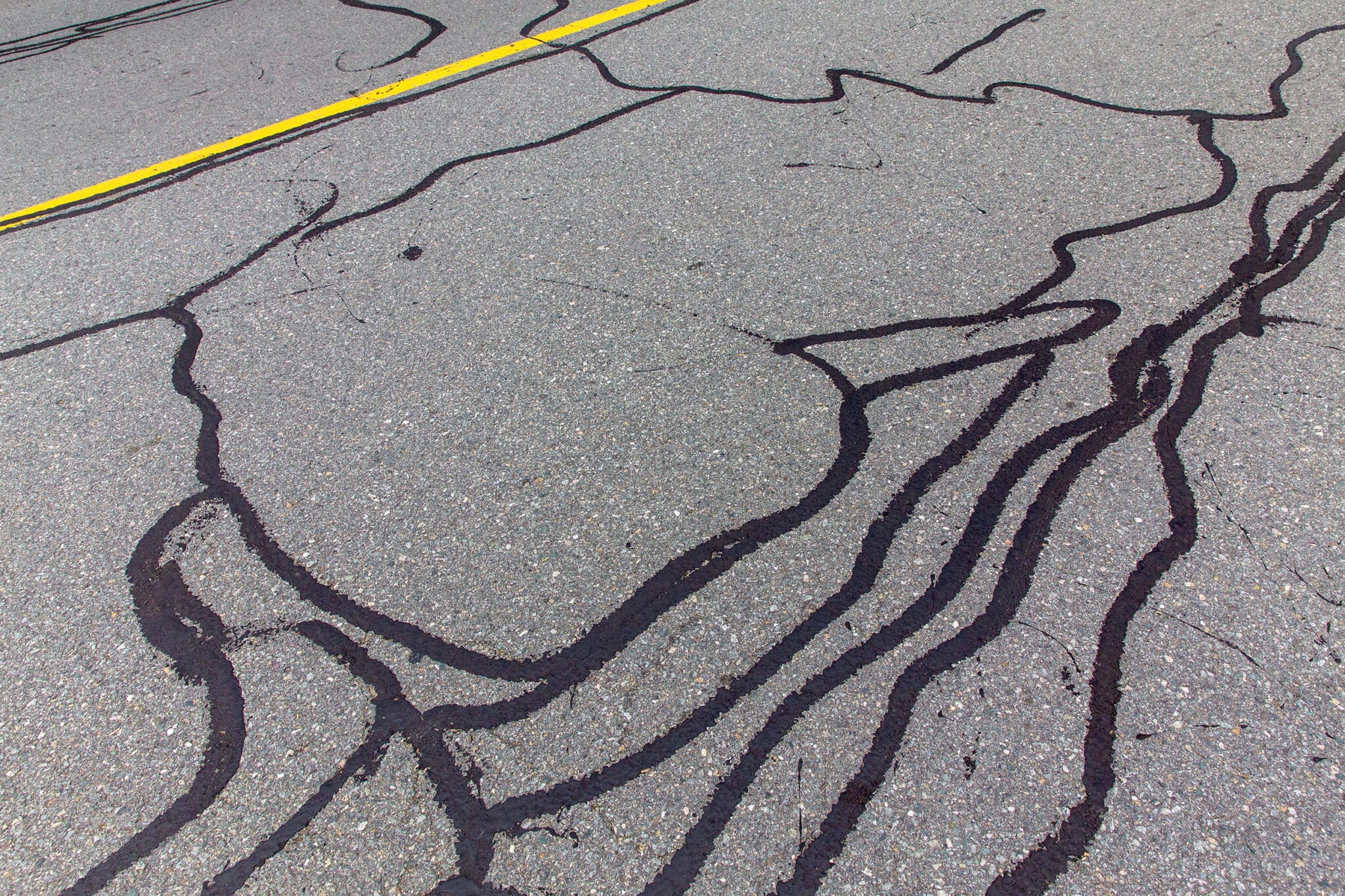Let loose the Possible: Regrading and Asphalt Sealing for Business Rooms
Wiki Article
Warm Mix Asphalt: A Sustainable Service for Pavement
Hot Mix Asphalt (HMA) has become a leading lasting selection for sidewalk remedies, offering a myriad of environmental benefits and innovative technologies. Its capacity to reduce and recycle materials energy usage presents a compelling instance for its fostering in road construction projects. Additionally, the lasting efficiency and longevity of HMA make it a favored option for infrastructure growth. As the need for environmentally friendly construction techniques grows, exploring the subtleties of HMA's sustainability can supply important understandings into the future of pavement options.Environmental Advantages of Warm Mix Asphalt

Moreover, Warm Mix Asphalt assists to minimize metropolitan warmth island effects. Its dark shade absorbs sunlight, reducing the amount of warmth reflected back into the ambience compared to lighter-colored pavements. This can decrease ambient temperatures in metropolitan locations, decreasing the demand for cooling and ultimately minimizing power consumption.
Furthermore, Hot Mix Asphalt adds to enhanced stormwater administration. Its permeable nature permits water to penetrate the pavement and recharge groundwater products, lowering drainage and the risk of flooding. These environmental benefits make Hot Mix Asphalt a sustainable choice for paving roads and highways.
Power Performance in HMA Manufacturing
Is energy efficiency a vital consider the manufacturing of Warm Mix Asphalt (HMA)? Absolutely. Energy plays a considerable function in the production of HMA, affecting both cost and environmental sustainability. One key aspect of energy performance in HMA manufacturing is making use of cozy mix asphalt (WMA) innovations (regrading). WMA enables for the mixing and placement of asphalt at lower temperature levels contrasted to typical warm mix asphalt, leading to minimized power usage during production. This procedure not just reduces fuel use however likewise lowers greenhouse gas exhausts, making it an extra ecologically friendly option.Moreover, developments in plant technologies have actually resulted in even more energy-efficient HMA production procedures. Modern plants are developed with features like recycled asphalt sidewalk (RAP) processing abilities, efficient heater systems, and improved insulation, all adding to power savings. By enhancing energy use in HMA manufacturing, the market can reduce its carbon footprint while keeping top quality sidewalk materials. Power efficiency is, as a result, an important factor to consider in making sure the sustainability of Hot Mix Asphalt production.
Recyclability of Warm Mix Asphalt
The recyclability of Hot Mix Asphalt (HMA) is an essential facet of its sustainability and long-term environmental effect. HMA is just one of the most recycled materials in the USA, with over 100 million lots of redeemed asphalt pavement (RAP) being recycled each year in new pavement building. Reusing HMA supplies several environmental benefits, such as minimizing the demand for virgin products, lowering power consumption during production, and reducing the quantity of waste sent out to garbage dumps.The procedure of reusing HMA entails crushing the existing sidewalk, squashing it right into smaller sized items, and blending it with brand-new accumulation and asphalt binder to produce a recycled mix. This recycled mix can often perform as well as or even better than conventional HMA, while requiring fewer raw materials and producing reduced greenhouse gas exhausts. By including RAP right into brand-new pavement jobs, road agencies can conserve all-natural sources, lower prices, and lessen the ecological impact of road building and construction and upkeep activities. Generally, the recyclability of HMA plays a significant duty in advertising lasting methods within the pavement industry.

Long-Term Performance of HMA
Asphalt sidewalks demonstrate longevity and durability over an extensive period, showing the long-term efficiency of Warm Mix Asphalt (HMA) Additionally, innovations in HMA modern technology, such as the use of polymer-modified binders and warm mix asphalt, have actually additionally enhanced the sturdiness and long life of HMA pavements. By prioritizing top quality building and construction and upkeep practices, HMA proceeds to confirm itself as a cost-effective and sustainable option for durable pavement facilities.
HMA: Longevity and Sustainability
Showing both resilience and sustainability, Warm Mix Asphalt (HMA) has come to be a foundation in the building and construction of resilient pavement infrastructures - regrading. HMA's sturdiness originates from its capability to hold up against heavy lots, severe climate condition, and high website traffic volumes, making it a trusted choice for roads, highways, and flight terminal paths. The composition of HMA, which normally includes aggregates, binder, and filler, plays a crucial role in boosting its long life and resistance to damage
Additionally, HMA's sustainability depends on its recyclability and energy-efficient production process. The capability to recycle reclaimed asphalt pavement (RAP) in new HMA blends reduces the demand for virgin materials and lessens the ecological impact of pavement building and upkeep. In addition, the power effectiveness of generating HMA exists in its reduced mixing temperatures compared to other sidewalk products, causing lowered power consumption and greenhouse gas emissions.
Conclusion
hot mix asphaltIn final thought, hot mix asphalt (HMA) supplies a lasting service for pavement with its eco pleasant qualities. HMA's recyclability, energy performance in production, and long-term longevity make it a green selection for road building and construction.
HMA is one of the most recycled materials in the United States, with over 100 million loads of reclaimed asphalt sidewalk (RAP) being reused annually in brand-new pavement building and construction.The process of recycling HMA entails milling the existing sidewalk, squashing it into smaller sized pieces, and mixing it with new accumulation and asphalt binder to develop a recycled mix.Asphalt pavements demonstrate longevity and durability over an extended duration, showing the long-term efficiency of Hot Mix Asphalt (HMA) Additionally, developments in HMA technology, such as the usage of polymer-modified binders and cozy mix asphalt, have better enhanced the longevity and longevity of HMA sidewalks. The capacity to reuse recovered asphalt sidewalk (RAP) in new HMA mixes lowers the demand for virgin materials and decreases the environmental effect of sidewalk building and construction and maintenance.
Report this wiki page